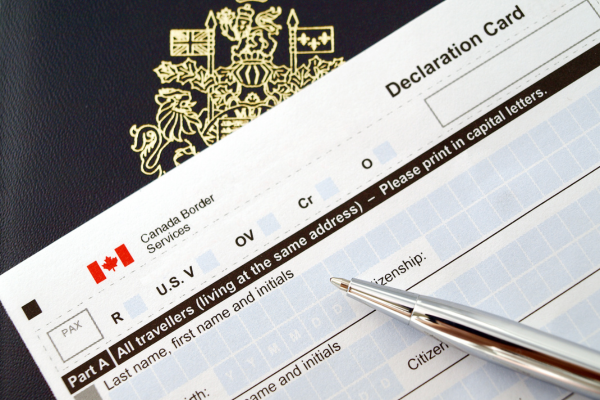Is a 1-Year Work Permit Enough for Canada?
Canada is a popular destination for skilled workers seeking employment opportunities and a better quality of life. Many individuals consider applying for a work permit to gain valuable experience, improve their skills, and potentially secure permanent residency. However, one common question arises: is a one-year work permit sufficient for achieving these goals? This article will explore the implications of a one-year work permit in Canada, its benefits, limitations, and frequently asked questions.
Overview of Work Permits in Canada
Canada offers various types of work permits tailored to different employment situations. The most common work permits include:
- Temporary Foreign Worker Program (TFWP): This program allows Canadian employers to hire foreign workers to fill labor shortages.
- International Mobility Program (IMP): This program enables employers to hire foreign workers without requiring a Labor Market Impact Assessment (LMIA).
- Open Work Permit: This type of permit allows individuals to work for any employer in Canada without a specific job offer.
- Express Entry: A points-based immigration system for skilled workers, which includes the Federal Skilled Worker Program, Federal Skilled Trades Program, and Canadian Experience Class.
Duration of Work Permits
Work permits in Canada can vary in duration based on the type of permit and the specific circumstances of the applicant. Common durations include:
- Short-term Work Permits: These permits typically last for a few months up to one year.
- Long-term Work Permits: These permits can be issued for multiple years, often depending on the employer’s needs and the applicant’s qualifications.
The One-Year Work Permit
A one-year work permit can be beneficial for various reasons, but it also comes with limitations. Here are some key considerations:
Benefits of a One-Year Work Permit
- Gaining Canadian Work Experience: A one-year work permit allows individuals to gain valuable work experience in Canada, which can enhance their resumes and improve their employability.
- Cultural Exposure: Working in Canada provides an opportunity to experience Canadian culture, lifestyle, and work ethics, which can be beneficial for personal and professional growth.
- Networking Opportunities: A one-year work permit allows individuals to build professional networks in Canada, which can be advantageous for future job opportunities.
- Potential Pathway to Permanent Residency: While a one-year work permit does not guarantee permanent residency, it can serve as a stepping stone. Individuals may be eligible to apply for permanent residency through programs like the Canadian Experience Class (CEC) after gaining sufficient work experience in Canada.
Limitations of a One-Year Work Permit
- Temporary Nature: A one-year work permit is temporary, meaning individuals must plan for their future after the permit expires. This may involve applying for a new permit, seeking permanent residency, or returning to their home country.
- Job Security: The temporary nature of the work permit may impact job security, as employers may be hesitant to invest in training or development for employees with limited time in the country.
- Limited Time for Skill Development: One year may not be sufficient for individuals to fully develop their skills or advance in their careers, especially in competitive industries.
- Transition to Permanent Residency: While a one-year work permit can provide a pathway to permanent residency, individuals must meet specific criteria and navigate the application process, which can be complex.
Factors to Consider When Applying for a One-Year Work Permit
When considering a one-year work permit in Canada, applicants should take the following factors into account:
- Job Offer: A valid job offer from a Canadian employer is often required to obtain a work permit. Applicants should ensure that the job aligns with their skills and career goals.
- Financial Stability: Applicants must demonstrate that they have sufficient funds to support themselves during their stay in Canada. This is especially important for those on a temporary work permit.
- Language Proficiency: Depending on the job and the province, applicants may need to demonstrate proficiency in English or French. Language skills can enhance employability and facilitate integration into Canadian society.
- Skill Level: The type of job and the skill level required can impact the likelihood of obtaining a work permit. Higher-skilled occupations may have better job prospects and opportunities for permanent residency.
- Long-Term Goals: Applicants should consider their long-term career goals and whether a one-year work permit aligns with those objectives. If permanent residency is a goal, it may be beneficial to explore options that provide a more direct pathway.
Pathways to Permanent Residency
While a one-year work permit is temporary, it can serve as a stepping stone to permanent residency in Canada. Here are some pathways to consider:
- Canadian Experience Class (CEC): This program is designed for individuals who have gained skilled work experience in Canada. After working for at least one year on a valid work permit, individuals may be eligible to apply for permanent residency through the CEC.
- Provincial Nominee Program (PNP): Some provinces have specific programs that allow them to nominate individuals for permanent residency based on their skills and experience. A one-year work permit can provide the necessary experience to qualify for a PNP.
- Express Entry: The Express Entry system is a points-based immigration system that assesses candidates based on factors such as age, education, work experience, and language proficiency. Gaining Canadian work experience can significantly boost an applicant’s Comprehensive Ranking System (CRS) score, improving their chances of receiving an Invitation to Apply (ITA) for permanent residency.
Financial Considerations
When applying for a one-year work permit, individuals should also consider their financial situation. This includes:
- Proof of Funds: Applicants may need to provide proof of funds to demonstrate their ability to support themselves during their stay in Canada. The amount required can vary based on family size and living expenses.
- Cost of Living: Different provinces and cities in Canada have varying costs of living. Applicants should research the cost of housing, transportation, food, and other essential expenses to ensure they can meet their financial needs.
- Employment Income: Individuals should consider the salary offered by their employer and whether it will be sufficient to cover their living expenses while in Canada.
FAQ Section
- Is a one-year work permit enough to secure permanent residency in Canada?
- A one-year work permit can provide valuable Canadian work experience, which may help individuals qualify for permanent residency through programs like the Canadian Experience Class (CEC) or Provincial Nominee Program (PNP).
- Can I extend my one-year work permit?
- Depending on your circumstances, you may be able to apply for an extension or a different type of work permit. However, this will depend on factors such as your employer’s willingness to support your application and the type of work you are doing.
- What happens if my one-year work permit expires?
- If your work permit expires, you must either apply for an extension or a new permit before it expires or leave Canada. Overstaying your permit can result in penalties and difficulties in obtaining future visas.
- Do I need a job offer to apply for a one-year work permit?
- Yes, in most cases, you will need a valid job offer from a Canadian employer to apply for a work permit.
- What are the financial requirements for a one-year work permit?
- Applicants may need to provide proof of funds to demonstrate their ability to support themselves during their stay. The amount required can vary based on family size and living expenses.
- Can I bring my family with me on a one-year work permit?
- Yes, in most cases, you can bring your spouse and dependent children with you. They may need to apply for their own permits or visas.
- What are the costs associated with applying for a one-year work permit?
- The costs can vary based on the type of work permit and other factors. Application fees typically range from CAD 150 to CAD 1,500.
- Is it possible to switch employers while on a one-year work permit?
- Yes, but you may need to apply for a new work permit if you wish to change employers. It is essential to consult with your current employer and a migration agent to ensure compliance with regulations.
Conclusion
A one-year work permit can be a valuable opportunity for individuals seeking to gain experience in Canada. While it offers numerous benefits, such as cultural exposure and networking opportunities, it also comes with limitations. Applicants should carefully consider their long-term goals and financial situation when applying for a one-year work permit. With the right planning and preparation, a one-year work permit can serve as a stepping stone toward achieving permanent residency in Canada and building a successful career.
Relevant Links
| Visa Type | Link |
|---|---|
| Canada Work Permit Information | https://www.canada.ca/en/services/immigration-citizenship.html |
 Skip to content
Skip to content



